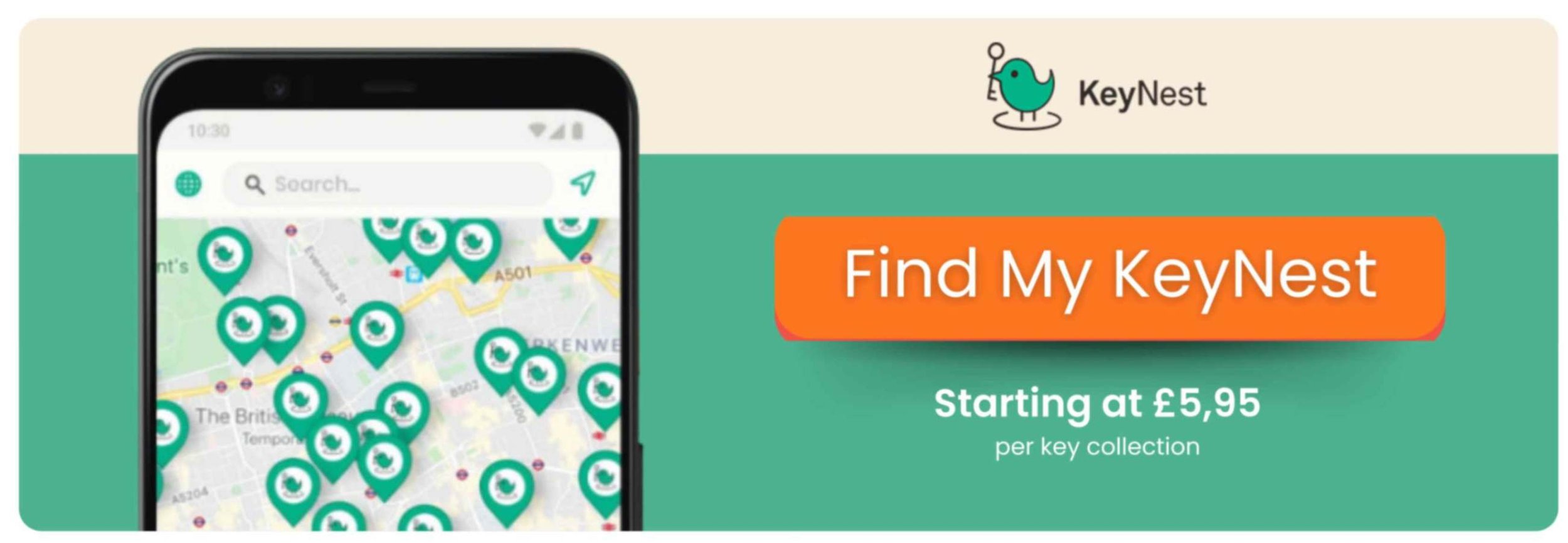Over 1500 key exchange locations nationwide
What Airbnb Hosts Need To Know About Service Animals In Uk
When renting out a property on Airbnb, hosts must navigate various regulations and guest needs. One of the most sensitive yet essential topics is accommodating service animals. Unlike pets, service animals are not subject to standard pet policies and UK laws require hosts to allow them in most cases. Many property managers may not fully understand their legal obligations, leading to potential disputes or misunderstandings. Knowing the difference between service dogs and emotional support animals is crucial, as different rules apply to each.
Additionally, hosts may wonder how to maintain their property while being compliant with disability rights laws. Some landlords might also be concerned about allergies, damages, or complaints from other guests. Misconceptions to allow pets as service animals can lead to legal issues, fines, or negative reviews that impact future bookings. As Airbnb becomes a top choice for travelers, more guests with disabilities are using the platform. Understanding how to create an inclusive yet practical hosting strategy is key to maintaining a successful rental business. This article will explore legal requirements, best practices, and practical solutions for handling service animals in Airbnb properties across the UK.
By staying informed, property managers can confidently host all guests while protecting their business interests. Whether you are new to property hosting or an experienced property manager, this guide will help you navigate service animal policies effectively. Let’s dive into everything you need to know to ensure compliance and guest satisfaction.
Understanding UK Policy On Service Pets In Short-Term Rentals
The UK has clear legal protections in place for individuals who rely on service animals. As an property host, understanding these regulations is crucial to avoid legal disputes and ensure compliance. The most relevant law is the Equality Act 2010, which protects individuals with disabilities from discrimination, including in housing and accommodations. This means property hosts cannot refuse a booking based solely on a guest having a service animal. Unlike general pet policies, service animals must be accommodated, even in "no pets allowed" properties.
Hosts may not charge pet fees for cleaning of service animals normal mess, as this would be considered discriminatory. However, emotional support animals do not receive the same legal protections under UK law, and hosts are not required to accept them. Landlords and property managers must balance their rights with legal obligations while ensuring fair treatment for all guests.
Service animals are protected under the Equality Act 2010 – Property hosts must allow them in rental properties.
No extra cleaning fees can be charged – Treating service animals differently could be considered discrimination.
Emotional support animals are not legally required to be accepted – They do not have the same rights as service animals.
Hosts cannot refuse a booking based on service animals alone – Denying a guest with legitimate service documentation due to a service animal is illegal.
Making reasonable accommodations is required – This includes ensuring safe access and a comfortable stay.
Violation of these rules can result in legal consequences – Fines and potential lawsuits may occur.
Understanding these laws protects hosts from discrimination claims – Staying informed avoids unnecessary legal troubles.
How To Maintain Your Airbnb Property When Booking Guests With Service Animals
While accommodating service animals is a legal obligation, property managers can take proactive steps to maintain their rental spaces. Service animals are highly trained and typically cause minimal damage, but hosts should still have a plan to ensure cleanliness and property upkeep. Clear house rules and effective communication can help set expectations for all guests.
Providing amenities like pet-friendly mats or designated areas can help contain shedding and minimize impact. Additionally, maintaining a positive attitude and professionalism towards guests with service animals can lead to better reviews and repeat bookings.
Service animals are well-trained and cause minimal damage – Unlike pets, they are trained service assistance, not companionship.
Regular cleaning routines are essential – This ensures hygiene and minimizes allergens.
Communicating house rules upfront helps set expectations – Clear guidelines prevent misunderstandings.
Providing designated areas for animals can minimize impact – Pet-friendly mats or resting spots help contain messes.
Documenting any damage is crucial – Proper records assist with insurance claims if needed.
Professionalism leads to positive reviews and repeat bookings – Welcoming service animals enhances guest experiences.
Being proactive protects both the property and business reputation – Good hosting practices lead to long-term success.
Addressing Common Concerns About Hosting Service Animals
Many property managers have concerns when it comes to hosting service animals in their Airbnb listings. One of the biggest worries is potential property damage, but since service animals undergo rigorous training, they are much less likely to cause issues compared to regular pets. Allergy concerns are another major issue, but thorough cleaning and air purification can help mitigate any risks.
Additionally, it is essential to verify the legitimacy of service animals without violating guest privacy. While hosts cannot demand documentation, they can ask if the animal is indeed a service animal. Understanding and addressing these concerns can make hosting service animals a seamless experience.
Service animals are trained to behave properly – They are not disruptive or destructive.
Thorough cleaning can reduce allergy risks – Proper maintenance ensures a safe environment for all guests.
Clear communication with guests can prevent complaints – Setting expectations helps avoid conflicts.
Hosts cannot legally demand proof of service animal status – However, they may ask if the animal is needed for a disability.
Other guests' concerns should be handled professionally – Addressing issues calmly maintains a positive atmosphere.
Focusing on inclusion enhances business reputation – Accepting service animals creates a welcoming brand image.
Adapting best practices ensures legal compliance and smooth hosting – Proper knowledge leads to success.
Best Practices For Airbnb Hosts For Hosting Guests With Service Animals
Successfully hosting guests with service animals requires a balance of legal compliance, clear communication, and thoughtful property management. By understanding and following United Kingdom laws, property hosts can avoid legal issues and provide an inclusive experience for all guests. Implementing proper cleaning routines ensures a comfortable environment while reducing potential allergen concerns. Setting expectations through house rules helps both the host and guest feel more at ease. Addressing concerns proactively can prevent misunderstandings and ensure smooth operations.
Treating service animal accommodations as a standard practice can also enhance the property’s reputation and attract more bookings. Instead of viewing service animals as a challenge, hosts should see them as part of a broader commitment to accessibility. Staying informed about changing regulations ensures ongoing compliance and smooth business operations.
Overall, welcoming service animals positively impacts both the guest experience and long-term success as a host. By being proactive, professional, and accommodating, property managers can confidently navigate this aspect of Airbnb managing while maintaining a high-quality rental business.
About Us
KeyNest offers you a convenient service for storing and exchanging your property keys. You can drop off a key at any of the 7,000+ locations in our network, so there’s one such Point located next to your property.
Guests, cleaners or contractors can then collect the key securely from a KeyNest Point or KeyNest Locker which is usually open 24/7. You'll be notified each time the key is picked up or returned, and you can even customize check-in and check-out times. By leveraging technology and a global network of locations, KeyNest continues to redefine property management, offering solutions tailored to meet the evolving needs of the rental market..
KeyNest has an ever-expanding global network of locations located just minutes from your property. To find out more you can contact us.
Neil Beltran 12 February 2025



